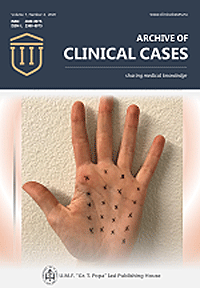Chronic inflammation
- Tuberculous lymphadenitis (tuberculous granuloma)
- Pulmonary tuberculosis
- Foreign body granuloma
- Sarcoidosis (lymph node) (page under construction)
Chronic inflammation is a long lasting inflammation (weeks or months) due to persistent aggressive stimuli and is characterized by: active inflammation with mononuclear cells, tissue destruction and repair. It can follow acute inflammation or can be chronic right from the beginning.
Types of chronic inflammation : unspecific (e.g. : chronic peptic ulcer) and specific (granulomatous).
According to the mechanism, granulomatous inflammation may be : immune type (tuberculosis, sarcoidosis) and non-immune type (foreign body reaction).
Classification of granulomatous inflammation, according to the etiology :
- Infectious granuloma :
- Bacterial :
- Mycobacterium tuberculosis (Koch bacillus) - Tuberculosis
- Mycobacterium leprae - Leprosy
- Treponema pallidum - Syphilis
- Gram-positive bacillus (Actinomyces israeli) - Actinomycosis
- Gram-negative bacillus (Bartonella henselae) - Cat-scratch disease
- Parasitic :
- Toxoplasma gondii - Toxoplasmosis
- Helminths - Cysticercosis
- Fungi (Candida albicans) - Candidiasis
- Bacterial :
- Foreign body granuloma
- Unknown etiology granuloma :
- Sarcoidosis
- Crohn's disease

